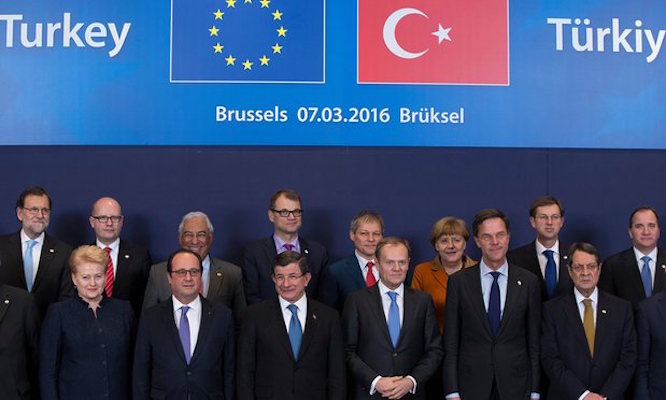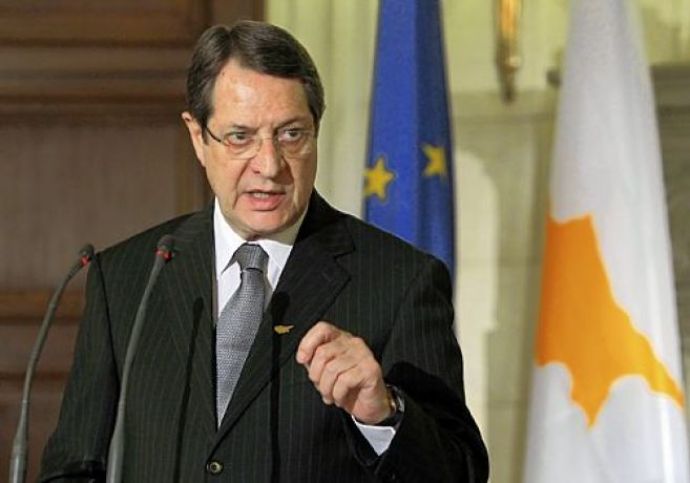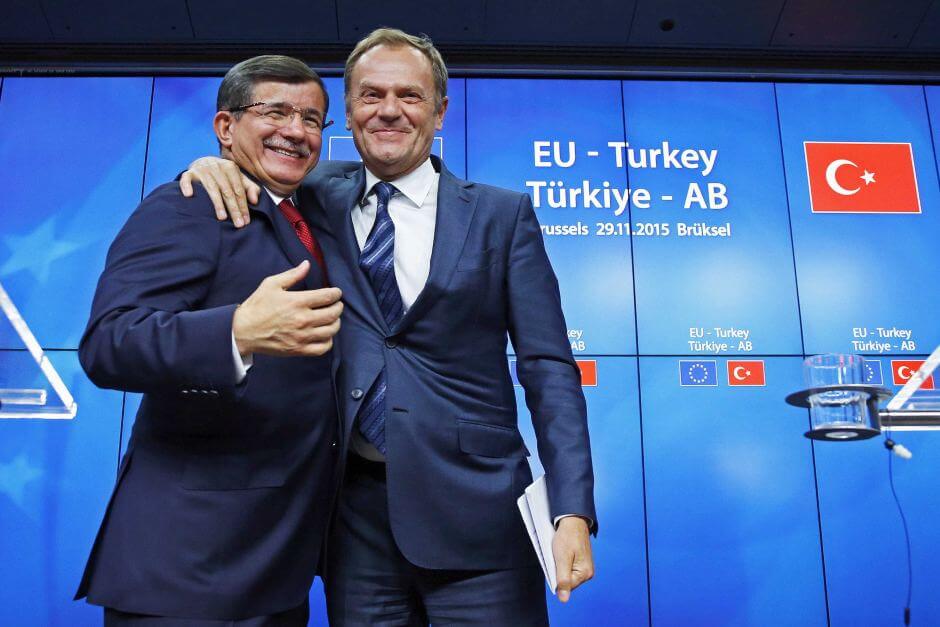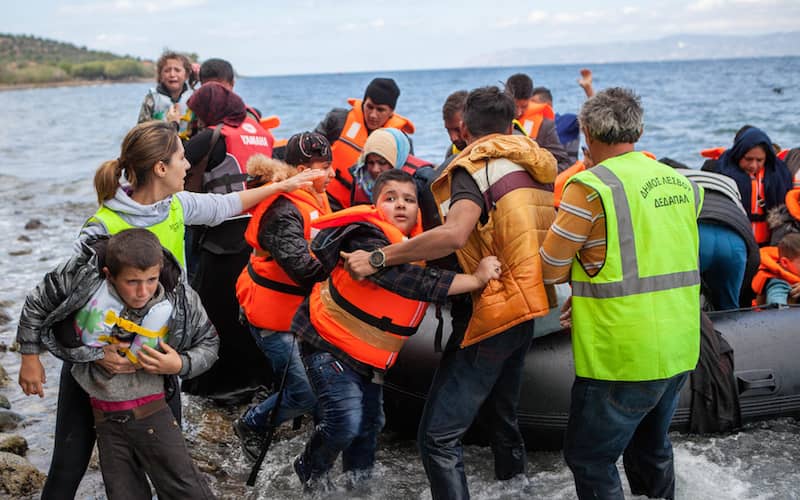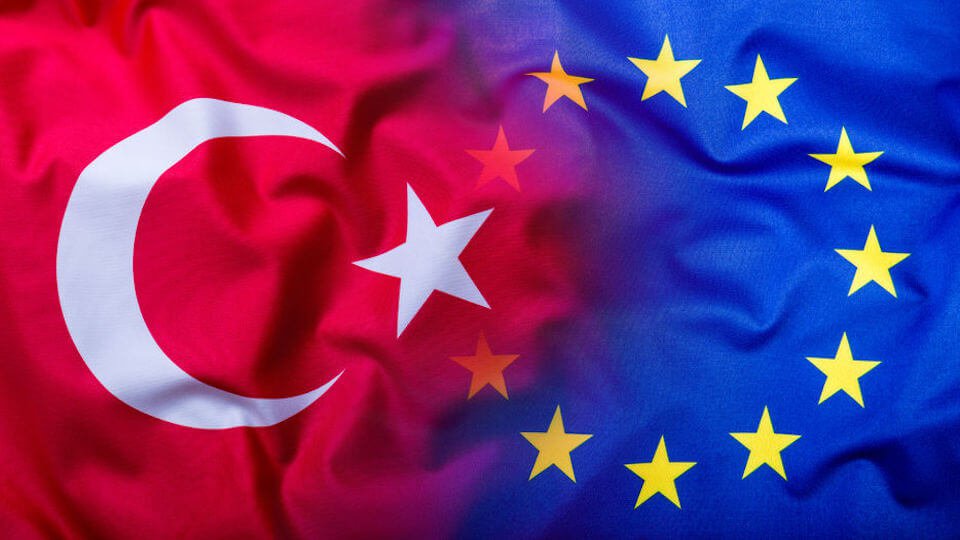EU leaders are pretending to solve the problem. But most observers remain skeptical about the chance of success of their latest decisions
1. The agreement is contested on grounds of international law. European governments say now the exact opposite of what they were saying in 1989. They were then hailing the fall of Berlin Wall, now they build themselves new walls. Greece is asked to change its own legislation in order to accept that Turkey is a safe country, which is not.
2. Turkey is getting financial help and diplomatic concessions. But it is not applying the agreement. It is allowing or even sending much more new people to the Greek islands every passing day. A reportage by British Chanel Four shows how Turkish coast guards are obliging boats with refugees and immigrants to enter Greek territorial waters. In the same time Turkish aviation violates constantly Greek air space. As for NATO ships, they do everything except addressing the problem for which they are supposed to have come to Eastern Aegean
3. European governments have backtracked from their own decisions about the numbers of refugees they were going to accept. Instead of exerting the necessary pressure to Turkey, they confirmed their decision to close the Greek borders, thus transferring all the pressure to their fellow member-state of the Union, Greece.
4. Greece has not really any material and technical possibility to apply an agreement which is government – anyway in deep confusion and all the time retreating – was pressured to cosign. Even much better organized states would have difficulty in handling such a situation. Tomorrow, European media will begin, as it is a fashion these years, to expose “Greek disorganization” and “chaos”. Turkey is receiving six billion euros for the agreement, the crisis has already a cost of one billion euros for Greece, but the latter has received only thirty million. It was promised 700 millions in three years, most of that money going directly to mainly international NGO’s. In the same time the Creditors are pushing hard Tsipras and his government to accept new cuts in pensions and new increases in already exorbitant taxation, thus accelerating the destruction of whatever has remained alive in Greek economy and society, after six years of continuous “help to Greece” by EU, European governments and IMF.
Refugee deal between Turkey and EU sparks chaos on Greek islands
Greek officials have admitted that they don’t expect the returns policy to come into force until April 4th, by which time Greece must have set up a fast-track process for assessing asylum claims
It also remains unclear what will happen to the tens of thousands of migrants and refugees already in Greece after the closure of the main route through the Balkans
Migrant crisis: Turkish monitors on Greek islands for EU deal
Returns: All “irregular migrants” crossing from Turkey into Greece from 20 March will be sent back. Each arrival will be individually assessed by the Greek authorities
One-for-one: For each Syrian returned to Turkey, a Syrian migrant will be resettled in the EU. Priority will be given to those who have not tried to illegally enter the EU and the number is capped at 72,000
Visa restrictions: Turkish nationals should have access to the Schengen passport-free zone by June. This will not apply to non-Schengen countries such as Britain
Financial aid: The EU is to speed up the allocation of €3bn ($3.3bn; £2.3bn) in aid to Turkey to help migrants
Turkish EU membership: Both sides agreed to “re-energise” Turkey’s attempt to join the European bloc, with talks due by July
Refugee crisis: Boats arrive in Greece despite EU deal
Merkel ally says Germany has changed course in refugee crisis
“The federal government has completely changed its refugee policy, even if it does not admit that,” Horst Seehofer, leader of the Christian Social Union (CSU), the Bavarian sister party to Merkel’s Christian Democrats (CDU), told Bild am Sonntag.
Some 1.1 million refugees came to Germany in 2015.
EU-Turkey deal could see Kurds moving to Germany en masse: German conservative
A prominent figure in the Bavarian sister party of Chancellor Angela Merkel’s conservatives said on Sunday a deal between the European Union and Turkey to halt illegal immigration to Europe could lead to Kurds heading to Germany en masse.
Killing Asylum: The Turkish-EU deal on Migrants
http://intpolicydigest.org/2016/03/10/killing-asylum-the-turkish-eu-deal-on-migrants/
http://intpolicydigest.org/2016/03/10/killing-asylum-the-turkish-eu-deal-on-migrants/
